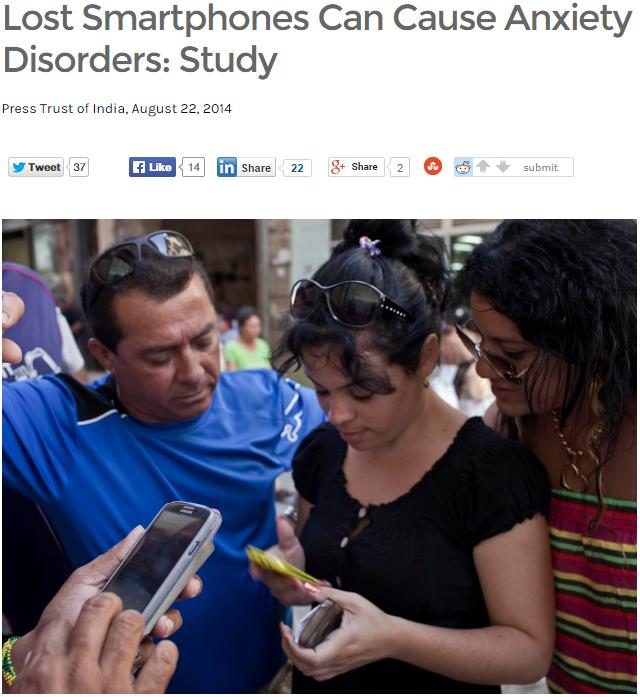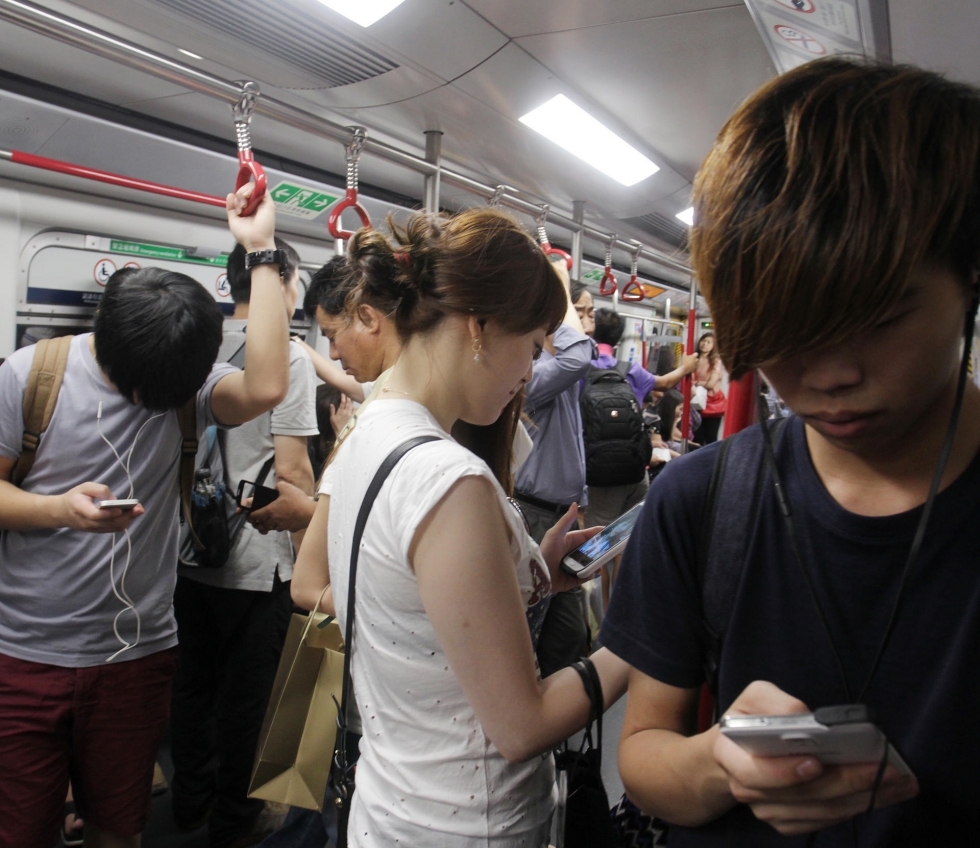[FACT OR FAKE #69] Is There Really Such A Thing Called "Smartphone-Loss Anxiety Disorder"?
There have been much coverage about a new press release on how lost smartphones can cause anxiety disorder, terming it as "smartphone-loss anxiety disorder" and claiming that it's a real thing and we should all be worried.
On 21 August, a press release for a new research paper published on EurekAlert caught the eyes of some prominent news websites with the headline, "Smartphone-Loss Anxiety Disorder"
These resulting articles trumpet it as "a real thing," and "anxiety disorder lurking in your pocket"
Published in the latest issue of the International Journal of Mobile Communications, the study was conducted by two Canadian researchers at McMaster University in Ontario. They explain that the growing processing power of smartphones means that we are all carrying around enormous stashes of what they called “assets”—sensitive and indispensable data. This could range from personal and professional contacts to treasured photos and confidential bank account information. As anyone who has lost a device knows, the loss of those “assets” can make an inconvenience into a truly traumatic and anxiety-provoking experience. Beyond the temporary electronic disconnection, the data contained on a phone can present a privacy and security risk, if it finds its way into the hands of a malicious third party.
But while many can relate to the annoyance of losing a phone, calling it a disorder might seem like an over-diagnosis, especially to anyone who knows someone with a diagnosed anxiety disorder.
psmag.comThe actual research paper, forthcoming in the International Journal of Mobile Communications, touches on an increasingly important topic, considering how much personal data, including photos and videos, is stored on these devices
More and more people (40 percent, according to the researchers’ survey) use personal mobile devices for work, which puts even more confidential information—for the company and its clients—at stake. Despite all this, “no academic research has been published on the threat of mobile device loss and theft, even though security issues have drawn much attention,” Tu and her colleagues write.
psmag.comThe survey included 339 responses, a representative sample of US mobile device users
Of those respondents, 20.1 percent had lost a cell phone, smartphone, or laptop computer one time—an unlucky (or forgetful) 5.9 percent reported losing devices more than once.
psmag.comFor the most part, people agreed that losing their devices would be a big problem: 57 percent agreed that data stored in the lost mobile device could be subject to unauthorized use, while only 21 percent disagreed. (The remainder chose “neither agree nor disagree.”) 61 percent agreed that their privacy would be invaded because of confidential information on the device—only 18 percent disagreed.
megalegit.comHowever, these concerns didn’t necessarily encourage the respondents to learn how to protect their devices: 72 percent did not know their device could be set to automatically erase data after a number of failed login attempts. 47 percent were unaware of remote wiping capabilities.
psmag.comWhat's the deal here? Is there really such a thing as smartphone-loss anxiety disorder? How much of this is FACT or FAKE?
FAKE: There is no such thing as smartphone-loss anxiety disorder
The study didn’t actually look at “anxiety” or “disorder,” two very loaded medical terms; it basically just asked respondents things like did they know phones could be wiped remotely, and would they tell their employer a phone had been lost. (The respective answers to those questions: No and yes.)
washingtonpost.comAccording to the paper’s lead author, Zhiling Tu of McMaster University, who provided Pacific Standard with the raw data analyzed in the study, “We did not research on ‘loss anxiety’ or ‘disorder.’ We just tried to analyze why people would cope with device loss and what factors led people to cope with such [a] security threat.”
psmag.com



